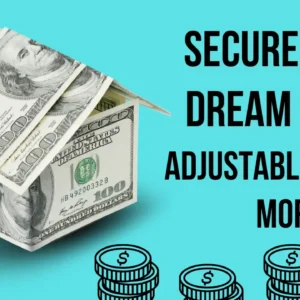Have you looking for a mortgage but are discouraged about qualifying for one? You aren’t alone. A lot of people are afraid that they’re not meeting the requirements that it takes to get a home mortgage approved. This is how the right knowledge can help you get approved. Keep on reading if you’d like to learn how everyone is able to get a home mortgage approved.
Before trying to get a mortgage approval, find out your credit score. Mortgage lenders can deny a loan when the borrower has a low credit score caused by late payments and other negative credit histories. If your credit score is too low to qualify for a mortgage loan, clean up your credit, fix any inaccuracies and make all your payments on time.
When you get a quote for a home mortgage, make sure that the paperwork does not mention anything about PMI insurance. Sometimes a mortgage requires that you get PMI insurance in order to get a lower rate. However, the cost of the insurance can offset the break you get in the rate. So look over this carefully.
Having the correct documentation is important before applying for a home mortgage. Before speaking to a lender, you’ll want to have bank statements, income tax returns and W-2s, and at least your last two paycheck stubs. If you can, prepare these documents in electronic format for easy and quick transmission to the lender.
Create a financial plan and make sure that your potential mortgage is not more than 30% of your total income. If it is more than that, you may have trouble making the payments. Making sure your mortgage payments are feasible is a great way to stay on budget.
Always read the fine print before you sign a home mortgage contract. There are many things that could be hidden inside of the contract that could be less than ideal. This contract is important for your financial future, so you want to be sure that you know exactly what you are signing.
What do you do if the appraisal does not reflect the sales price? There are limited options; however, don’t give up hope. You can dispute the appraisal and ask for a second opinion; however, you will need to pay for the appraisal out of your pocket at the time of the appraisal.
Try going with a short-term loan. Since interest rates have been around rock bottom lately, short-term loans tend to be more affordable for many borrowers. Anyone with a 30-year mortgage that has a 6% interest rate or higher could possibly refinance into a 15-year or 20-year loan while still keeping their monthly payments near around what they’re already paying. This is an option to consider even if you have slightly higher monthly payments. It can help you pay off the mortgage quicker.
If you’re having trouble getting approved for a mortgage, consider purchasing a fixer-upper home rather than your first and most expensive choice. While this means spending a considerable amount of time and money, it may be your best option in qualifying for a mortgage. Banks often want to unload fixer-uppers, too, so that also will work in your favor.
If you are looking to buy any big ticket items, make sure that you wait until your loan has been closed. Buying large items may give the lender the idea that you are irresponsible and/or overextending yourself, and they may worry about your ability to pay them back the money you are trying to borrow.
Minimize all your debts before attempting to purchase a home. The responsibility of making your mortgage payments is a big one, and you need to be ready. The lower your debt is, the easier it will be for you.
Monitor interest rates before signing with a mortgage lender. If the interest rates have been dropping recently, it may be worth holding off with the mortgage loan for a few months to see if you get a better rate. Yes, it’s a gamble, but it has the potential to save a lot of money over the life of the loan.
If you are thinking about refinancing, then now is the time to do it. Do not procrastinate. When rates drop, you need to get in while they are low. While rates may stay low for a little while, they will eventually go up. So do not delay when interest rates are low, and go ahead and refinance.
When trying to figure out how much of a mortgage payment you can afford every month, do not neglect to factor in all the other costs of owning a home. There will be homeowner’s insurance to consider, as well as neighborhood association fees. If you have previously rented, you might also be new to covering landscaping and yard care, as well as maintenance costs.
You should eliminate some of your credit cards prior to buying any home. Too many credit cards can make you appear financially irresponsible. Having fewer credit cards could help you get a better interest rate on your mortgage.
If you are a first-time homeowner, get the shortest-term fixed mortgage possible. The rates are typically lower for ten and 15-year mortgages, and you will build equity in your home sooner. If you need to sell your home and purchase a larger one, you will have more cash to work with.
Ask a lot of questions about the mortgage lender you plan to use. The lender should answer your questions clearly, without being vague. If a lender dodges your questions or refuses to give a straight answer, you know it’s time to look for a new home mortgage lender to work with.
Do not take out a mortgage loan in order to buy the most expensive home on the block. While that may seem like a good idea, it can have a negative impact on your financial future. Since home values are calculated based on all of the homes around them, which means that later on, you may have a hard time selling it for its full value.
Everyone dreams of getting their dream home, but in many cases, it falls flat if you don’t get the right mortgage. You will eventually get a good mortgage if you keep trying. Just apply these tips, and everything else will fall into place.






